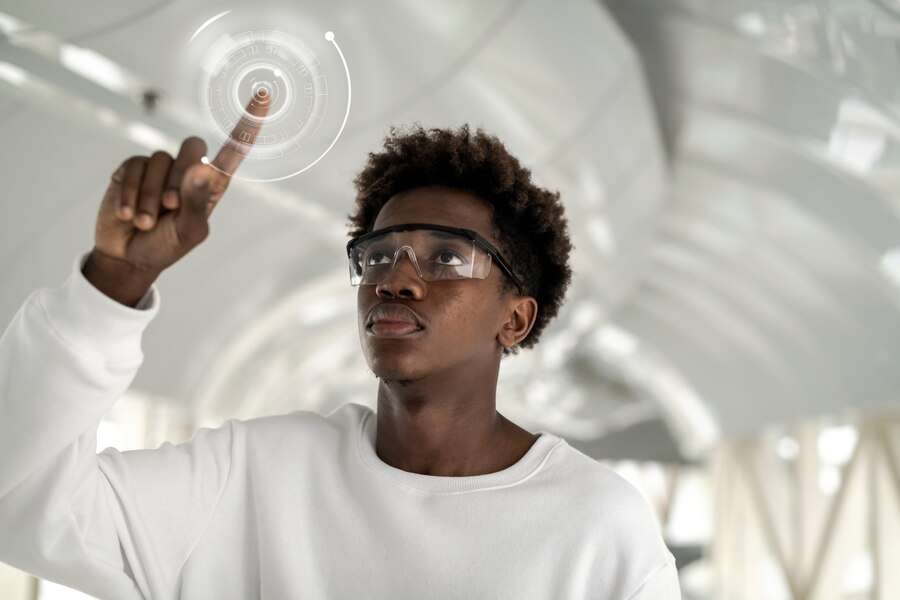on
BY SIMONE J. SMITH
For a while, it seemed like the only “smart” thing we owned was a phone, but, as Consumer Electronic Show (CES) 2025 just proved, pretty much everything is “smart” now — windows, toys, washing machines, guitars, you name it.
It brings me to question, what does it mean to be “smart,” and is it safe, or as necessary as we have made it?
A smart device is one that connects to the internet, allowing it to communicate with other devices and perform tasks autonomously. Look at how easy it is to adjust your smart thermostat with a mobile app, and it’ll maintain that temperature.
In many cases, smart devices have improved our quality of life. They make us more productive, give us more control over our environment, aid those with disabilities, and help us care for: pets, kids, and ourselves, but there are some concerns.
Privacy experts continue to worry that some devices allow too much surveillance into our homes or offer an in for hackers. New technologies have also enabled the systematic monitoring of what people are saying online, including through collecting and analyzing social media posts. This data extends beyond what any individual doctor could know, compiling a digital “fingerprint” of personal health and behavior.
Unfortunately, governments often fail to adequately inform the public about their surveillance activities, and even where surveillance tools are initially rolled out for legitimate goals, they can easily be repurposed, often serving ends for which they were not originally intended.
Researchers have extensively examined how companies involved in surveillance capitalism harvest data from our smart devices. This encompasses a wide range of activities, from tracking our location through GPS to monitoring our online activity and even analyzing our voice patterns through smart speakers. This data is then used to create detailed profiles of our: interests, habits, and even emotions.
What you need to understand is that these profiles are incredibly valuable commodities, allowing companies to target us with highly personalized advertisements, influence our purchasing decisions, and even manipulate our behavior. For example, social media platforms use algorithms to curate our feeds, ensuring we see content that keeps us engaged and coming back for more. This not only maximizes advertising revenue, but also contributes to the spread of misinformation and the formation of echo chambers (an environment where a person only encounters information or opinions that reflect and reinforce their own). While the convenience and benefits of smart devices are undeniable, it’s crucial to be aware of the extent to which our data is being collected and utilized, and to take steps to protect our privacy.
People’s right to privacy is coming under ever greater pressure from the use of modern networked digital technologies whose features make them formidable tools for surveillance, control and oppression, a 2022 UN report has warned. This makes it all the more essential that these technologies are reined in by effective regulation based on international human rights law and standards.
The report detailed how surveillance tools such as the “Pegasus” software (extraordinarily complex software relies on zero-day vulnerabilities to breach target devices and monitor communication) can turn most smartphones into “24-hour surveillance devices”, allowing the “intruder” access not only to everything on our mobiles, but also weaponizing them to spy on our lives.
We appreciate innovation and can’t wait for the next big thing, but when the power goes out, or our entire house gets hacked, we’re going to wish for simpler times. Ah, the good old days. When ‘smart’ meant actually being clever, not just having a Wi-Fi signal. Back then, we used our brains, not our devices, to solve problems. Now? We’re just a bunch of glorified remote controls, desperately searching for a signal while the world passes us by.
Progress, they call it. I call it a colossal waste of human potential.
REFERENCES:
https://cybernews.com/malware/what-is-pegasus-spyware/
Stay in the loop with exclusive news, stories, and insights—delivered straight to your inbox. No fluff, just real content that matters. Sign up today!
We, as humans are guaranteed certain things in life: stressors, taxes, bills and death are the first thoughts that pop to mind. It is not uncommon that many people find a hard time dealing with these daily life stressors, and at times will find themselves losing control over their lives. Simone Jennifer Smith’s great passion is using the gifts that have been given to her, to help educate her clients on how to live meaningful lives. The Hear to Help Team consists of powerfully motivated individuals, who like Simone, see that there is a need in this world; a need for real connection. As the founder and Director of Hear 2 Help, Simone leads a team that goes out into the community day to day, servicing families with their educational, legal and mental health needs.Her dedication shows in her Toronto Caribbean newspaper articles, and in her role as a host on the TCN TV Network.














